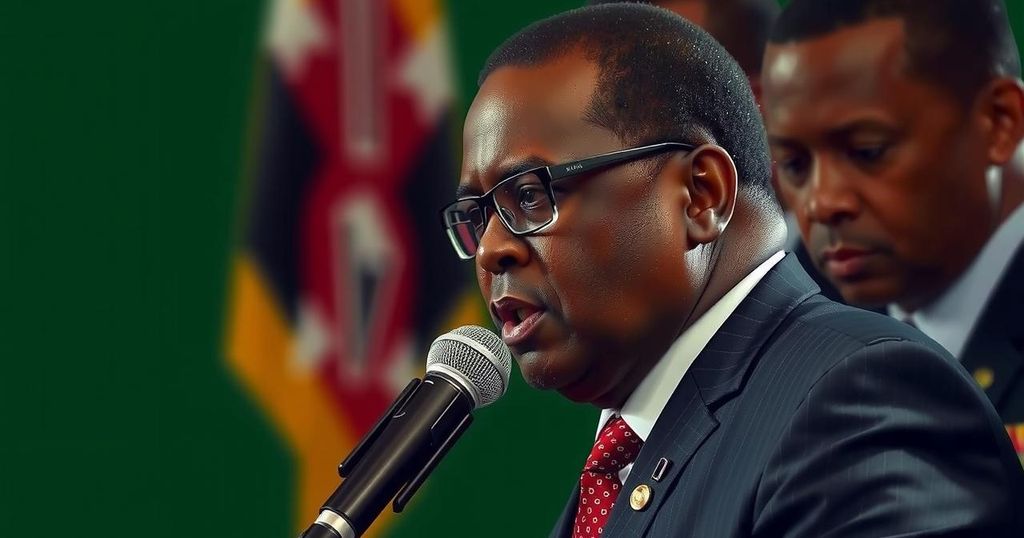Kenya’s Deputy President Rigathi Gachagua was impeached by the Senate following a historic trial, making him the first deputy president to be ousted in this manner under Kenya’s 2010 constitution. The Senate upheld five of eleven charges against him, including constitutional violations, after Gachagua was hospitalized and unable to defend himself. The impeachment reflects deepening political tensions between Gachagua and President William Ruto amid widespread dissatisfaction over government policies.
In a groundbreaking event, Kenya’s Deputy President Rigathi Gachagua was dismissed from office following a historic impeachment trial. The Senate’s decision on Thursday came after the lower house, the National Assembly, overwhelmingly voted in favor of impeachment, citing eleven charges including corruption and abuse of office. On October 16, 2024, the Senate upheld five of these charges amidst high drama, including Gachagua’s hospitalization for severe chest pains on the trial day which prevented him from presenting his defense. Gachagua has become the first deputy president to be impeached since the revised 2010 constitution was enacted in Kenya. His impeachment represents a significant political shift and stems from a breakdown in relations with President William Ruto, with whom he had previously collaborated to secure electoral victory in 2022 predominantly supported by the Mount Kenya region. Senate Speaker Amason Kingi formally announced the impeachment, stating, “The Senate has resolved to remove from office, by impeachment, his excellency Rigathi Gachagua, the deputy president of the Republic of Kenya. Accordingly, his excellency Rigathi Gachagua ceases to hold office.” Gachagua faced serious accusations of constitutional violations, including threats against judges and engaging in divisive ethnic politics while being acquitted of other allegations related to corruption and money laundering. Despite denying any wrongdoing and labeling the accusations as ludicrous, he acknowledged the impeachment process as politically motivated. While Gachagua remained hospitalized during the Senate proceedings, his lawyers objected to the continuation of the trial in light of his condition, arguing for his right to defend himself. With no criminal charges filed against him, he retains the option to contest his impeachment in court. This political upheaval has resulted in a sense of uncertainty in a nation known for its relative democratic stability. President Ruto has a fortnight to appoint a new deputy president, with several potential candidates, including prominent political figures, already speculated upon in the media. Amidst the controversy, Gachagua appealed to his supporters to preserve peace, stating the importance of national unity regardless of the political landscape. As political tensions rise within the ruling party over recent protests against tax increases, the future trajectory of Kenya’s leadership remains delicately poised.
The impeachment of Deputy President Rigathi Gachagua marks a historic first in Kenya’s political arena since the introduction of the impeachment process in the 2010 constitution. The case highlights the entrenched political factions within the current administration, notably the rift between Gachagua and President William Ruto, who previously collaborated to win the 2022 elections. The charges against Gachagua underscore serious allegations regarding corruption and abuses of power, reflecting the broader challenges of governance and political accountability in Kenya. The Senate’s ruling has set a precedent and triggered discussions about the implications for Kenya’s political stability, particularly given the current climate of civil unrest and dissatisfaction among the populace over increased taxation and government policies.
The impeachment of Deputy President Rigathi Gachagua represents a pivotal moment in Kenyan politics that not only reflects on individual accountability at the highest levels of government but also signals ongoing political instability within the administration. As President Ruto faces the necessity to appoint a successor, the landscape of Kenyan leadership is shrouded in uncertainty, exacerbated by divisions in the ruling party. Gachagua’s appeals for peace amidst this tumultuous period may serve as a crucial reminder to the Kenyan populace about the need for unity as the nation confronts substantial political challenges ahead.
Original Source: www.seychellesnewsagency.com







